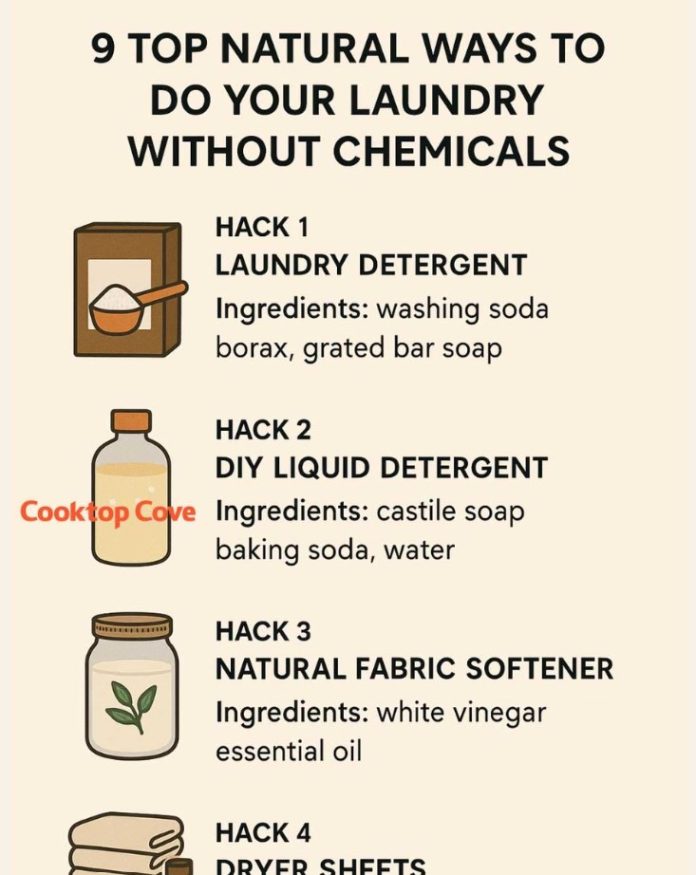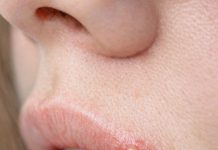In today’s world, more people are becoming aware of the potential dangers posed by chemical-laden products, not only to our health but also to the environment. This heightened awareness has led many individuals to seek out natural alternatives for everyday tasks, including laundry. By opting for natural laundry methods, we can reduce our exposure to harmful chemicals while promoting a more sustainable lifestyle. Utilizing common household ingredients, we can achieve clean, fresh-smelling clothes without the environmental footprint associated with conventional laundry detergents.
In this article, we will explore nine effective natural laundry methods that are easy to implement and beneficial for both you and the planet.
Understanding the Benefits of Chemical-Free Laundry
Switching to chemical-free laundry options brings forth a myriad of benefits. Firstly, it significantly reduces the risk of skin irritations and allergies that are often triggered by the synthetic fragrances and harsh chemicals found in commercial detergents. Many people experience rashes or respiratory issues due to these additives, making natural alternatives a safer choice.
Moreover, natural laundry methods are typically more environmentally friendly. They rely on biodegradable ingredients that do not pollute waterways or harm aquatic life. This shift also supports a more sustainable lifestyle by minimizing plastic waste associated with store-bought products. Ultimately, embracing natural laundry alternatives contributes to a healthier home and a cleaner planet.
1. Homemade Laundry Detergent: A Simple and Effective Recipe
Creating your own laundry detergent is simpler than you might think and can be done with just a few ingredients. A basic recipe includes washing soda, borax, and grated bar soap. These components work together to effectively clean clothes without the need for synthetic additives.
To make your own detergent, mix one part grated soap with two parts washing soda and two parts borax. Store this mixture in an airtight container, and use approximately two tablespoons per load. Not only is this homemade detergent cost-effective, but it is also customizable to suit your preferences. You can experiment with different types of soap or add essential oils for a pleasant scent.
2. DIY Liquid Detergent: A Gentle Solution for Delicate Fabrics
If you prefer liquid detergents, a DIY version can be easily made using castile soap, baking soda, and water. Start by dissolving a quarter cup of baking soda in a quart of warm water. Next, add half a cup of liquid castile soap and mix thoroughly. This gentle formula is perfect for delicate fabrics and can be conveniently stored in a reused liquid detergent bottle. Shake well before each use and add half a cup to your washing machine for a gentle yet effective clean.
3. Natural Fabric Softener: Softening Clothes the Eco-Friendly Way
Many commercial fabric softeners contain synthetic fragrances and chemicals that can irritate sensitive skin. A natural alternative is to use white vinegar as a fabric softener. Simply add half a cup of vinegar to the rinse cycle. Vinegar not only helps to soften fabrics but also reduces static and removes any detergent residue. For an added touch of fragrance, you can incorporate a few drops of essential oil into the vinegar before use.
4. Creating Your Own Dryer Sheets: Freshness Without Chemicals
To create your own reusable dryer sheets, cut a piece of cotton cloth into small squares. In a jar, mix equal parts water and white vinegar, adding a few drops of your favorite essential oil for fragrance. Soak the cloth squares in this mixture, wring them out, and allow them to dry. Store the dried sheets in a container and toss one into the dryer with each load. These DIY dryer sheets will leave your clothes smelling fresh without relying on synthetic fragrances.
5. Effective Stain Remover: Tackling Tough Stains Naturally
For a natural stain remover, blend equal parts baking soda and water to form a paste. Apply this paste directly to the stain and let it sit for at least 30 minutes before washing. For more stubborn stains, consider adding a few drops of hydrogen peroxide to the paste. This method is effective for a variety of stains, including grease, grass, and wine, while remaining gentle enough for most fabrics.
6. Strip Washing: Revitalizing Your Laundry with Natural Ingredients
Strip washing is a method used to deep clean clothes and remove built-up detergent residue. To strip wash, fill a bathtub or large basin with hot water and add a mixture of borax, washing soda, and laundry detergent. Soak the clothes for several hours, stirring occasionally, then rinse thoroughly. This process revitalizes fabrics, restoring their softness and brightness without the use of harsh chemicals.
7. Wool Dryer Balls: A Sustainable Alternative to Dryer Sheets
Wool dryer balls provide an excellent eco-friendly alternative to traditional dryer sheets. They help to reduce drying time, soften clothes, and minimize static. Simply toss three to six balls into the dryer with your laundry. For an added fragrance boost, you can apply a few drops of essential oil to the balls before use. Wool dryer balls are reusable and can last for hundreds of loads, making them a sustainable choice for your laundry routine.
8. Vinegar and Baking Soda: The Dynamic Duo for Laundry Cleaning
Vinegar and baking soda are powerful natural cleaning agents that can enhance your laundry routine. For a simple laundry booster, add half a cup of baking soda to the wash cycle to improve detergent performance. In the rinse cycle, incorporate half a cup of vinegar to soften clothes and neutralize odors. This dynamic duo is effective for brightening whites, removing stains, and keeping your washing machine clean and fresh.
9. Essential Oils: Adding Natural Fragrance to Your Laundry
Essential oils offer a delightful way to infuse your laundry with fragrance without resorting to synthetic scents. Simply add a few drops of your favorite essential oil, such as lavender or lemon, to your homemade detergent or wool dryer balls. Not only do essential oils provide a pleasant aroma, but many also possess antibacterial properties, enhancing your laundry’s cleanliness. Feel free to experiment with different oils to discover the scent that best suits your preferences.
Conclusion:
Embracing a Chemical-Free Laundry Routine
Transitioning to a chemical-free laundry routine is a rewarding choice for both your health and the environment. By utilizing natural ingredients and DIY methods, you can achieve clean, fresh-smelling clothes without the need for harsh chemicals. These practices not only promote a healthier home but also contribute to a more sustainable planet. By embracing these natural alternatives, you can enjoy the peace of mind that comes with knowing you are making a positive impact on both your family’s well-being and the environment.
Incorporating these nine natural laundry methods into your routine can transform the way you approach laundry. Not only will you be reducing your exposure to harmful chemicals, but you’ll also be fostering a more eco-friendly lifestyle. So why not take the plunge? Start experimenting with these methods today and discover the joy of a cleaner, greener laundry experience!










